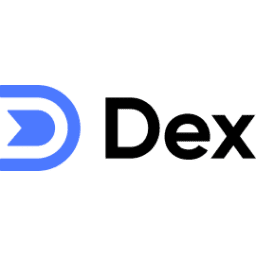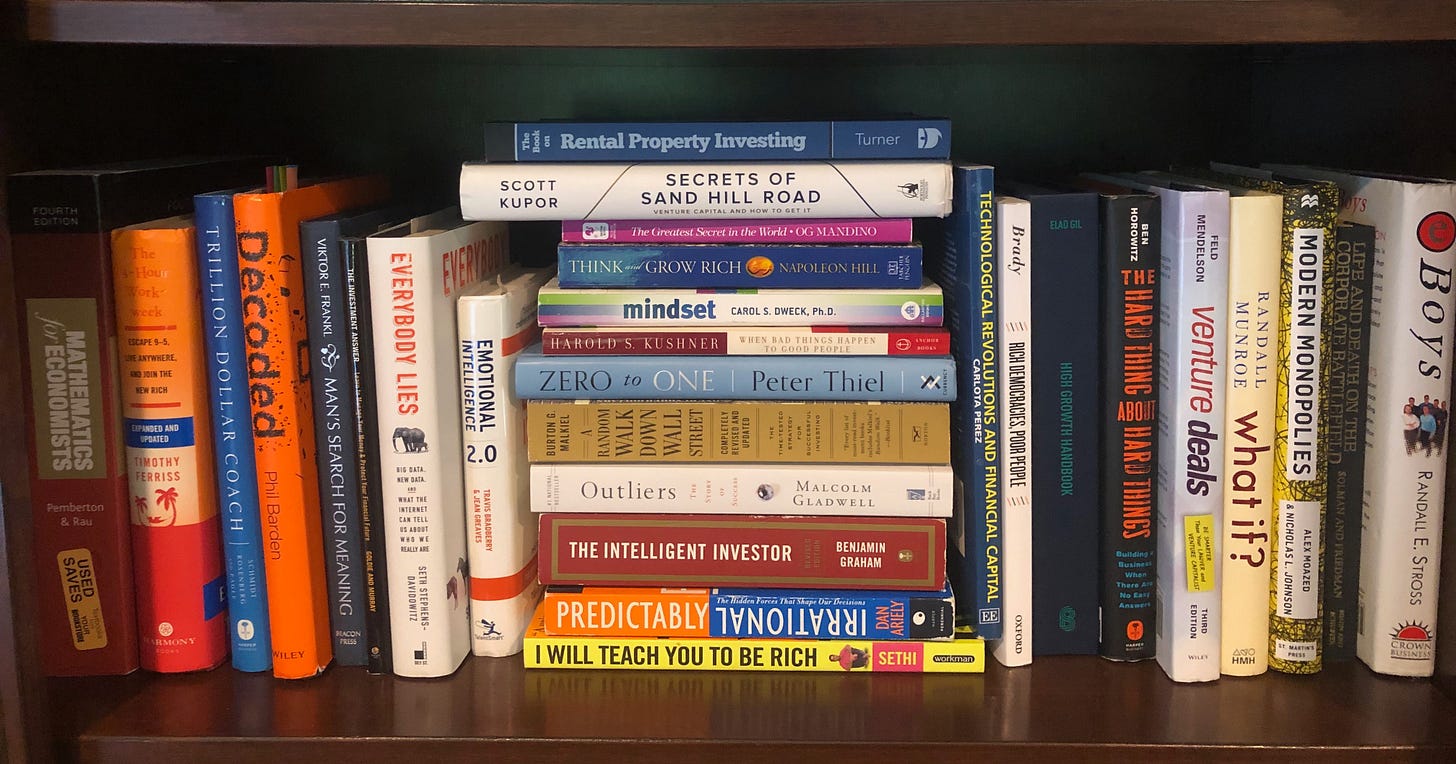Dex mini-dive (personal CRM), Octahedron Capital's Q2 learnings, NBT on restaurants and grocery delivery, The Making of Cult Brands, and more.
Some things to read and listen to over the weekend. And, an opportunity to join the Contrary team.
If you are interested in receiving future newsletters directly in your inbox, feel free to subscribe 👇!
We have two types of newsletters:
Long-form interviews with leading founders, operators, and investors. These are released every Monday. (Check out: Jeff Moris Jr. (Chapter One), Ashley Brasier (Lightspeed), Ryan Choi (Y Combinator), Domm Holland (Fast)
Curated content that our Team found interesting and relevant for our subscribers. These are released every other Friday / Saturday. (This newsletter is an example)
Hey everyone 👋,
Welcome to the August 28th Edition of What We’ve Been Following, our bi-weekly newsletter highlighting some of the newsletters, podcasts, blog posts, tweets, startup news, and more that our Team found interesting over the past few weeks.
If you missed the last Edition of What We’ve Been Following, published on August 7 and written by our awesome Intern Isabella, be sure to check it out, here.
Since the last What We’ve Been Following, we’ve released three interviews via our Newsletter and one via our Podcast (our first Podcast episode!). Feel free to check them out if you haven’t already:
As always, you can find us on Twitter @_TheTakeoff.
(Today’s What We’ve Been Following newsletter is written by Michael.)

Quick rundown of today’s newsletter:
1 Mini-Dive (courtesy of Rishik Lad)
2 Podcasts 🎙
3 Tweets 🐦
5 Articles, Newsletters, Blog Posts, etc. 📝
3 ‘More’ 💡
1 Opportunity at Contrary Capital 🌟
Mini-dive: Dex (a personal CRM)

As an undergraduate, I'm always looking to meet new people. I love developing relationships with folks on my intellectual and cultural wavelength, and it's often these kinds of relationships that last a lifetime. Whether they're college friends, university alumni, professors, or even people in online communities like Accelerated, having conversations with the right people has been a tremendous value-add in my life.
But, I used to have a lot of trouble managing these relationships — spreadsheets & Airtables aren't optimized for tracking relationships and CRMs like Salesforce don't even address the problem.
Enter: Dex (YC S19)
"Life is busy; relationships are hard. We searched for the right tool for our relationships (yes, we tried Airtable!) but nothing was perfect. These tools were manual, tedious, and hard to come back to. We decided to build a better solution. Dex was founded in 2019, and we’ve been building ever since. We named it Dex because we're creating the simple, modern rolodex of today." — Kevin Sun (Founder of Dex)
With Dex, it's much easier to interact more meaningfully with friends, colleagues, and professional contacts. Integrations with email, LinkedIn, Messenger, and Twitter make it incredibly easy to import / add people, form relevant groups, and log different interactions. A super-intuitive (and frankly, gorgeous) design makes me want to come back to the tool and check in with the people that matter the most. And because Dex is a rapidly growing startup (3,000,000 relationships managed to date!), they're always adding new features. Not only have I been able to add more nodes to my network, but I've also been able to engage them much more meaningfully.
I highly recommend Dex. It's $10/month for Premium, but it's a lot more valuable than that :)
(Written by Rishik Lad. Rishik is a rising sophomore at Dartmouth College and is on the growth and operations team at Remote Students, the next-gen professional platform for students. If you’re interested in contributing to The Takeoff in a similar manner to Rishik, let me know 😁)
Podcasts 🎙
20VC: Sahil Lavingia. Sahil joined Harry to talk about rolling funds, joining Pinterest as the 2nd employee, leaving Pinterest before his stock vested, founding Gumroad, focusing on profitability, rolling funds, and more.
David Blaine on The Joe Rogan Experience. I had a 16-hour car ride out to St. Louis with a few friends the other day. We listened to David Blaine’s podcast episode with Joe Rogan toward the end of the drive and it did not disappoint. This episode is definitely a step-away from tech, startup, venture, etc. content, but is highly enjoyable nonetheless. Blaine is a magician, illusionist, endurance athlete, and performer — many of the things he does are incredible, but I would not recommend trying any of them. Next week, Blaine will attempt to fly to 25,000 feet using balloons. It will be shown on YouTube.
Books 📚
As a result of being somewhat lazy, getting ready for college, and watching a ton of sports over the past few weeks, I haven’t had the opportunity to read any books recently. That said, I took a cool picture of one of the bookshelves at my house. Hopefully, the image can give you some inspiration on your next read :)

Twitter 🐦


Articles, Newsletters, Blog Posts, Etc. 📝
Food Delivery and The Future of Restaurants by Nikhil Basu Trivedi. NBT has been writing about the venture capital industry on his Substack for the past few weeks but decided to transition away from that for a bit to focus on markets and business models. We’ve included two of his posts in this WWBF, so clearly he is doing something well. Main takeaways:
“In May, 29 percent of American consumers had ever ordered from one of the services,” — Second Measure. 70% of Americans haven’t used a major food delivery service. There is massive room to grow!
"According to the Second Measure data in June, 17% of DoorDash’s customers and 16% of Postmates’ customers are subscribers.” Lots of room for growth in delivery platform subscriptions.
“As many as 85% of independent restaurants may go out of business by the end of 2020. The financial loss for the entire restaurant industry is predicted to be $240 billion by the end of 2020.” Restaurants have been hit hard by COVID. While post-pandemic restaurants will likely not look the same as pre-pandemic restaurants, there exist strong opportunities, nonetheless, to adapt to new consumer behaviors (online ordering, pickup, delivery, etc.)
Do not be shocked if more and more ghost kitchens (delivery-only restaurants) arise.
Grocery Delivery and The Future of Packaged Food by Nikhil Basu Trivedi. After writing a piece on food delivery, NBT decided to dive into the grocery delivery space. Main takeaways:
“In March 2020, spending at U.S. grocery stores jumped by 26%. While spending at restaurants and bars had marginally eclipsed that of spending at grocery stores for the past few years, 63% of food and drink was purchased at grocery stores in March, the highest % share since 1996.” COVID has boosted grocery store spend.
E-commerce penetration for grocery is still extremely low. Massive upside potential exists.
Unclear whether the ‘Uber model’ (e.g. Instacart) is the best for grocery
“The unknown for everyone involved in the grocery delivery industry is what consumer behavior will look like when we are back to normal, without masks and shelter-in-place restrictions.” Post-pandemic, most people will likely return to grocery stores but others will continue ordering groceries online due to convenience.
NYC is Dead Forever… Here’s Why by James Altucher. James makes a compelling argument that many of the things that attract folks to NYC (business opportunities, culture, food, friends, etc.) will not be the same in a post-pandemic world. As a native New Yorker, the headline of this article caught my eye. Yes, New York will likely never be entirely the same as it was pre-pandemic. But, I doubt it is “Dead Forever.” Rather, the complexion of people living in New York will change. The city will change. But, New York will remain and will continue to flourish. It may take time to get New York back to where it was before COVID, and to be totally honest, I love the idea of remote work and being able to live where you want and still productively do your job, but I, personally, am long on NYC.
Curators Are the New Creators by Gaby Goldberg. As Gaby writes, “The real scarcity isn’t content anymore. It’s attention.” There is an abundance of content available in today’s world. The real power comes in weeding out what actually matters and is relevant to you. Enter: the rise of curators. Curators essentially dive through the pool of information and content in a specific space and share the ‘most’ relevant pieces of content for their audience. This very newsletter is an example of content curation!
The Making of Cult Brands by Jordan Odinsky. “The psychology that drives the most successful cults can be incredibly powerful in brand building.” Cult brands (Apple, Tesla, Superhuman (startup), Fast (startup)) can shape how their followers view the world and behave. In this piece, Jordan highlights a few key characteristics when building a cult brand:
Create An Enemy
Build The Velvet Rope
Sketch The Commitment Curve
More … 💡
Airbnb’s IPO plans. Airbnb recently filed for an August IPO. The company’s value fell from $31B to $18B during the pandemic. Airbnb has had over $1B in cancellations since the start of the pandemic and has given out over $250M to hosts to help cover losses in that time. From funding their startup by selling cereal boxes to IPO, it’s been an exciting ride for Brian Chesky, Joe Gebbia, Nathan Blecharczyk, and team.
Twitter, George Soros, and Porn by Ranjan Roy. Yash’s main takeaways:
Social media algorithms primarily promote highly exaggerated outliers —> “censors” the routine elements of life.
George Soros’ theory of reflexivity: feedback loop in which someone’s expectations of reality can have a direct impact on the future (e.g. a stock price rising can help shape a company’s future financial performance simply based on the fact that the stock is rising).
The same concept applies to social media. As we begin to think of our social media feeds as indicative of real life, then we begin to shape our real-life based on that (false) understanding of the world.
Y Combinator’s Startup Library. Collection of YC’s essays, podcasts, videos, and more from the past 15+ years.
Join Contrary Capital!
A blurb from one of Contrary’s Venture Partners at WashU:
Contrary is recruiting a new class of talented and diverse Venture Partners!
Contrary is a venture fund that identifies the world’s top early-career engineers, designers, and product minds, connects them with a close-knit, career-long support community, and invests in companies they start or join. We’re backed by the founders of Tesla, Reddit, and many more companies. If you’re excited by the idea of investing up to $500k in university founders, having an excuse to talk to smart people working on cool things, and being a part of an awesome community, apply at contrarycap.com/join.
We’re also hosting a virtual national info session on Monday, August 31 at 6pm PT / 9pm ET. We’ll give an in-depth overview of Contrary and the Venture Partner role.
Visit contrarycap.com/join for more info.
That’s all for today’s Edition of What We’ve Been Following!
Thanks for being a part of The Takeoff fam! Help us grow and expand our impact by sharing The Takeoff.
We have some amazing interviews lined up to be released in the coming weeks, starting with Monday’s newsletter with Matteo Franceschetti (Co-founder & CEO at Eight Sleep).

If you find The Takeoff valuable, share it with friends, or subscribe 👇 if you aren’t already.

